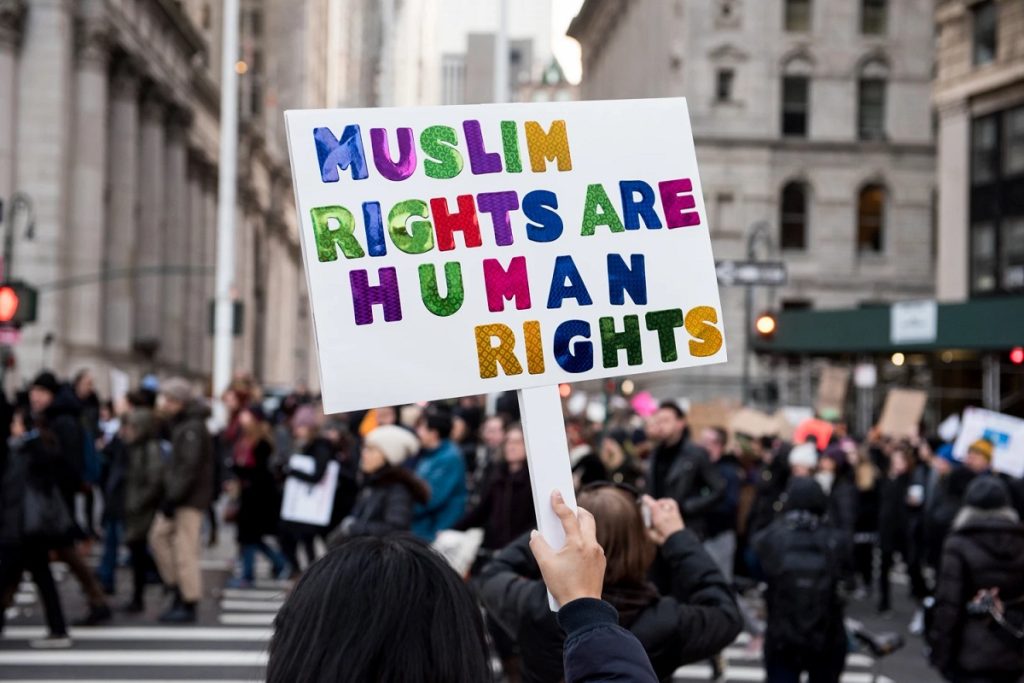The Muslim community in the United States generally responds to disputes, surrounding problems, or hate crimes with a combination of community solidarity, legal action, and cooperation with authorities. Their approach often includes the following:
Reporting to Authorities
-
-
Muslim individuals and organizations are encouraged to report hate crimes or threats immediately to local police departments or the FBI’s Civil Rights Division.
-
Many mosques and Islamic centers provide workshops on how to document incidents and preserve evidence for legal purposes.
-
Community Support Networks
-
-
Muslim communities often unite quickly in times of crisis, offering emotional, financial, and logistical assistance to victims.
-
Organizations such as the Council on American-Islamic Relations (CAIR), Muslim Advocates, and MPower Change provide legal aid and advocacy.
-
Public Awareness and Media Engagement
-
Community leaders may hold press conferences, issue public statements, and use social media to raise awareness about the incident.
-
This helps ensure that the case receives attention, reducing the risk of it being overlooked.
Peaceful Protests and Interfaith Solidarity
-
-
Many Muslim communities partner with churches, synagogues, and civic organizations to hold peaceful rallies against hate crimes and discrimination.
-
Interfaith coalitions amplify their voice and promote unity.
-
Education and Prevention
-
-
-
Workshops in schools, universities, and workplaces help educate the public about Islam and counter harmful stereotypes.
-
This preventative approach reduces misunderstandings and promotes peaceful coexistence.
-
-
In summary, when faced with disputes or hate crimes, Muslim communities in the U.S. often adopt a law-abiding, organized, and proactive strategy that combines legal recourse, public advocacy, and community solidarity.

